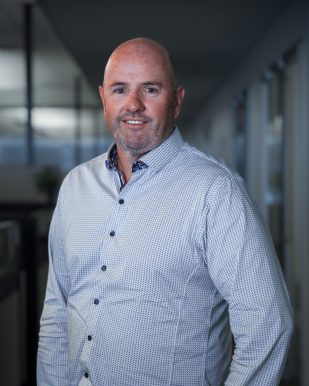Homeownership is becoming increasingly unattainable for too many workers, and communities are going to need to make innovative decisions to create more affordable housing if they want to attract talent, Federal Reserve Bank of Richmond President and CEO Tom Barkin said Wednesday during the Virginia Governor’s Housing Conference in Hampton.
Barkin said the nation’s housing crunch is affecting the largest cities to the most remote of towns, impacting availability of talent, and encouraged communities to rally together “to see housing as integral to economic growth. Regional leaders need to speak with one voice.”
Though some areas saw increased housing demand and higher home prices before the pandemic, demand increased and supply dwindled across many more communities over the past three years, he noted. Low interest rates and spending more time at home in 2020, as well as remote work allowing some people to move to less expensive places, caused people to reevaluate their living situations. With buying becoming harder, it became cheaper to rent, but the rental market is taking a hit on the supply side too, Barkin said.
In a question-and-answer session with Virginia Commerce and Trade Secretary Caren Merrick, Barkin discussed the Fed’s role in addressing inflation and interest rates — the goal is to use interest rates to bring down inflation.
“The objective isn’t interest rates,” Barkin said. “The objective is to control inflation … everybody hates inflation, we do something about inflation. We’re the only agency asked to do something about it. We have one tool: interest rates.”
Virginia numbers
In Hampton Roads, the number of monthly active listings increased for the seventh straight month in October, according to the Real Estate Information Network. But the number of settled and pending sales are down month-over-month and year-over-year. The median sales price is down slightly from September, decreasing from $333,000 to $330,140.
In Northern Virginia, home sales declined 5.6% in October as compared to October 2022, and prices increased 3.1%, according to data from Northern Virginia Association of Realtors. The month’s supply of inventory was up but still down from the five-year average. Median sales prices increased but at a slower clip.
“The combination of mortgage rates and selling prices continues to challenge some would-be buyers,” Jon McAchran of Virginia Beach-based AtCoastal Realty and president of REIN’s board of directors, said in a news release. “However, homes are still selling, as shown by the median days on market, which is the same as it was last year at this time.”
Virginia isn’t faring as well as its neighbors, however, when it comes to building single-family homes.
“Everyone is struggling with this issue, but we can learn from each other,” Barkin said. “For those of you with a competitive spirit, both South and North Carolina have issued more permits for private, single-family homes than Virginia in each month since 2016.”
While encouraging communities to work together to solve housing availability, communities must also recognize they are competing for developers, Barkin said, suggesting they explore ideas including developing financial incentives and streamlining municipal processes like permitting and timelines. He added that communities also need to “work” the biggest barrier and incentive for developers: land availability.
In 2022, Barkin noted, finished lot costs made up nearly 20% of the average sales price of a new single-family home, and minimizing that cost can go a long way. Communities can rezone under-leveraged land to spark higher-density development and invest in buildable homesites. Another idea: transforming older, unused structures into apartments. Barkin referred to the Dan River Falls project in Danville, where developers are turning an old textile mill into retail space and 150 apartments.
“Once you start thinking of the possibilities, it is impossible to stop, and I know Virginia has efforts underway to look at all state-owned land that could be used for housing,” he said.
Barkin cited another alarming stat: In 2022, construction costs were 60.8% of the average sales price for a new single-family home in the U.S., up from 55.6% in 2017, according to a February report for the National Association of Home Builders. Those costs may stay high, and communities should consider efforts to bring down housing costs, whether it’s building smaller or different types of homes, for example, he said.
Finally, Barkin said Virginia localities need to look to unconventional partners to lower homebuilding costs, working with foundations and employers such as Amazon.com, as well as colleges and universities, which can build more dorms to free up other housing.
“We all know housing availability is limiting communities,” Barkin said. “The key is more supply. To create that supply, communities need to own the problem, compete for developers, innovate in offering affordable land and lowering costs and engage with nontraditional partners … this is a math problem — but one where potential solutions are beginning to multiply.”



